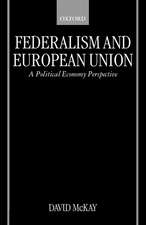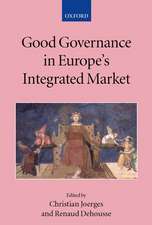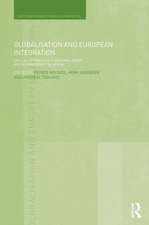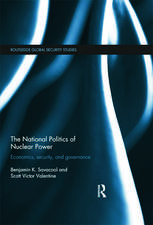Iran and the International Community (RLE Iran D): Routledge Library Editions: Iran
Autor Anoush Ehteshamien Limba Engleză Hardback – 28 feb 2011
Din seria Routledge Library Editions: Iran
-
 Preț: 260.86 lei
Preț: 260.86 lei - 35%
 Preț: 994.05 lei
Preț: 994.05 lei -
 Preț: 356.75 lei
Preț: 356.75 lei - 36%
 Preț: 821.82 lei
Preț: 821.82 lei - 34%
 Preț: 765.40 lei
Preț: 765.40 lei - 34%
 Preț: 824.17 lei
Preț: 824.17 lei -
 Preț: 327.21 lei
Preț: 327.21 lei - 34%
 Preț: 621.93 lei
Preț: 621.93 lei - 34%
 Preț: 992.06 lei
Preț: 992.06 lei - 34%
 Preț: 849.11 lei
Preț: 849.11 lei - 34%
 Preț: 622.63 lei
Preț: 622.63 lei - 35%
 Preț: 1052.40 lei
Preț: 1052.40 lei - 18%
 Preț: 1058.69 lei
Preț: 1058.69 lei - 34%
 Preț: 763.97 lei
Preț: 763.97 lei - 36%
 Preț: 823.44 lei
Preț: 823.44 lei - 35%
 Preț: 994.76 lei
Preț: 994.76 lei - 18%
 Preț: 993.55 lei
Preț: 993.55 lei - 30%
 Preț: 338.42 lei
Preț: 338.42 lei - 34%
 Preț: 764.87 lei
Preț: 764.87 lei - 26%
 Preț: 240.07 lei
Preț: 240.07 lei - 38%
 Preț: 764.87 lei
Preț: 764.87 lei - 34%
 Preț: 993.14 lei
Preț: 993.14 lei - 18%
 Preț: 998.77 lei
Preț: 998.77 lei - 34%
 Preț: 762.36 lei
Preț: 762.36 lei - 34%
 Preț: 823.99 lei
Preț: 823.99 lei - 38%
 Preț: 765.59 lei
Preț: 765.59 lei - 34%
 Preț: 822.18 lei
Preț: 822.18 lei - 28%
 Preț: 276.08 lei
Preț: 276.08 lei - 35%
 Preț: 993.51 lei
Preț: 993.51 lei - 34%
 Preț: 764.87 lei
Preț: 764.87 lei - 34%
 Preț: 823.26 lei
Preț: 823.26 lei - 36%
 Preț: 824.53 lei
Preț: 824.53 lei -
 Preț: 398.18 lei
Preț: 398.18 lei - 34%
 Preț: 992.06 lei
Preț: 992.06 lei - 34%
 Preț: 821.46 lei
Preț: 821.46 lei - 18%
 Preț: 1341.06 lei
Preț: 1341.06 lei
Preț: 821.65 lei
Preț vechi: 1240.42 lei
-34% Nou
Puncte Express: 1232
Preț estimativ în valută:
157.24€ • 163.56$ • 129.81£
157.24€ • 163.56$ • 129.81£
Carte tipărită la comandă
Livrare economică 15-29 aprilie
Preluare comenzi: 021 569.72.76
Specificații
ISBN-13: 9780415610513
ISBN-10: 0415610516
Pagini: 210
Dimensiuni: 156 x 234 mm
Greutate: 0.55 kg
Ediția:1
Editura: Taylor & Francis
Colecția Routledge
Seria Routledge Library Editions: Iran
Locul publicării:Oxford, United Kingdom
ISBN-10: 0415610516
Pagini: 210
Dimensiuni: 156 x 234 mm
Greutate: 0.55 kg
Ediția:1
Editura: Taylor & Francis
Colecția Routledge
Seria Routledge Library Editions: Iran
Locul publicării:Oxford, United Kingdom
Public țintă
General, Postgraduate, Professional, and UndergraduateNotă biografică
Multivolume collection by leading authors in the field
Cuprins
Introduction, Fred Halliday; Chapter 1 Iran and the United Nations, with Part icular reference to the Iran–Iraq War, Sir Anthony Parsons; Chapter 2 The United States and Iran, 1981–9, Eric Hooglund; Chapter 3 The Soviet Union and Iran, 1979–89, Manshour Varasteh; Chapter 4 Iran and the European Community, Anoushiravan Ehteshami; Chapter 5 Iran, the southern Mediterranean and Europe, George Joffe; Chapter 6 The GCC and the Islamic Republic, Gerd Nonneman; Chapter 7 Iran–Iraq, Colonel Edgar O’Ballance; Chapter 8 The political economy of Iran’s foreign trade since the revolution, Kamran Mofid; Chapter 9 Salman Rushdie, the Ayatollah and the limits of toleration, Iain Hampsher-Monk;
Descriere
In this book experts examine the main features of Iran’s foreign policy from 1980 – 1990, assessing relations with the UN, the superpowers, Europe, the GCC and Iraq. Although the Islamic revolution made Iran a significant force in the international arena, it is argued that the ending of the Cold War and the rise of Iraq as the dominant power in the Gulf are now creating a very different set of foreign policy challenges and options.

















